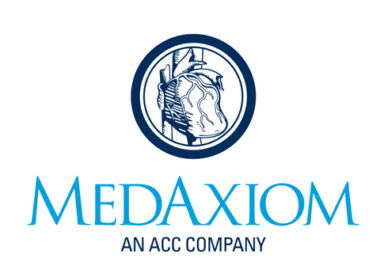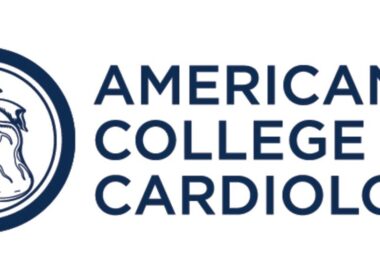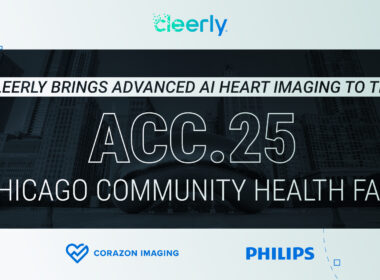Recently published foundational document and AI chapter provide a framework for health systems to integrate novel paradigms of care delivery CHICAGO–(BUSINESS WIRE)–The American College of Cardiology’s (ACC’s) five-year Strategic Plan includes a major initiative focused on transforming care delivery in new areas and recognizing the importance of delivering care within […]
Tag: ACC
Daxor Corporation Announces New Data from Duke University and Highlights Key BVA Insights at American College of Cardiology’s 74th Annual Scientific Session and Expo
BVA and Pressure Session Attracted 400+ Clinicians; Duke University Showcased Valuable New BVA Findings in Dedicated Poster Presentation Oak Ridge, TN, April 02, 2025 (GLOBE NEWSWIRE) — Daxor Corporation (Nasdaq: DXR), the global leader in blood volume measurement technology, announces excellent visibility of Daxor’s technology at the premier global cardiology conference, the American College of Cardiology (ACC) 74th Annual Scientific Session and Expo held in Chicago from March 29-31st. New data presented from Duke University Medical Center confirmed blood volume analysis (BVA) as a more precise measure of congestion in heart failure patients along with a focus session on the value of BVA compared to less reliable pressure measurement in heart failure care. At a standing-room-only session attended by over 400 participants, titled, “When Pressure ≠ Volume: Understanding Complex Hemodynamic Situations and Pitfalls,” Dr. Marat Fudim of Duke University Health emphasized that pressure-based assessments frequently misrepresent true volume status. The research reinforces that volume management, rather than pressure management, should be the cornerstone of heart failure treatment. “The intense interest in the session highlights how much the awareness of BVA is growing and the need for direct volume measurement is being increasingly recognized in the cardiology community,” said Michael Feldschuh, Daxor’s President and CEO. New research findings were also showcased from the Duke study, “Correlation Between Changes in Total Blood Volume and Measures of Congestion During Heart Failure Hospitalization,” which revealed that the following commonly used proxy markers believed to be useful for volume care did not, in fact, correlate with intravascular volume: Urine outputWeight changeBiomarkers CA-125, NT–proBNP “This research from Duke adds to the substantial body of evidence of the unique value of BVA and reinforces the urgent need for precision in managing congestion in heart failure,” said John L. Jefferies, MD, MBA, MPH, Chief Medical Officer, Daxor Corporation. “Traditional methods often mislead, relying on indirect markers that do not accurately reflect true blood volume status. BVA provides the clarity clinicians need to make informed decisions, optimize treatment, and ultimately improve patient outcomes.” About ACC The American College of Cardiology (ACC) envisions a world where science, knowledge and innovation optimize cardiovascular care and outcomes. We believe in the power of community. With more than 56,000 members worldwide spanning the entire cardiovascular team, we serve as the professional home for clinicians and researchers seeking the latest science, research, and education. United with our members, chapters, and global cardiovascular partners, we are focused on transforming cardiovascular care and improving heart health for all. For more information visit https://www.acc.org/. About Daxor Corporation Daxor Corporation (Nasdaq: DXR), is the global leader in blood volume measurement technology focused on blood volume testing innovation. We developed and market the BVA-100® (Blood Volume Analyzer), the only diagnostic blood test cleared by the FDA to provide safe, accurate, objective quantification of blood volume status and composition compared to patient-specific norms. Over 65,000+ tests have been performed at leading hospital centers across the U.S., enhancing hospital performance metrics in a broad range of surgical and medical conditions, including significantly reducing mortality and readmissions in heart failure and critical care. Daxor has several ongoing trials in the areas of heart failure treatment with support from the NIH and is under contract developing analyzers to improve combat casualty care with the U.S. Department of Defense. Daxor’s mission is to advance healthcare by enabling optimal fluid management with blood volume analysis. Daxor’s vision is optimal blood volume for all. For more information, please visit our website at Daxor.com. Sign up to receive news on Daxor’s innovative technology HERE. Forward-Looking Statements Certain statements in this release may include forward-looking statements within the meaning of the Private Securities Litigation Reform Act of 1995, including without limitation statements regarding the impact of hiring sales staff and expansion of our distribution channels. Forward-looking statements are predictions, projections and other statements about future events that are based on current expectations and assumptions and, as a result, are subject to risks and uncertainties. Many factors could cause actual future events to differ materially from the forward-looking statements in this release, including, without limitation, those risk associated with our post-market clinical data collection activities, benefits of our products to patients, our expectations with respect to product development and commercialization efforts, our ability to increase market and physician acceptance of our products, potentially competitive product offerings, intellectual property protection, FDA regulatory actions, our ability to integrate acquired businesses, our expectations regarding anticipated synergies with and benefits from acquired businesses, and additional other risks and uncertainties described in our filings with the SEC. Forward-looking statements speak only as of the date when made. Daxor does not assume any obligation to publicly update or revise any forward-looking statements, whether as a result of new information, future events or otherwise. Investor Relations Contact:Bret ShapiroSr. Managing Partner, CORE IR1-516-222-2560brets@coreir.com
Dr. Christopher Kramer is New American College of Cardiology President
Kramer begins a one-year term as head of the premiere global cardiovascular organization WASHINGTON, March 31, 2025 /PRNewswire/ — Christopher M. Kramer, MD, FACC, today assumed the role of president of the American College of Cardiology, an almost 60,000-member global cardiovascular…
New Data Confirm Rapid, Unpredictable Progression of Severe Aortic Stenosis and Need for Urgent Referral and Evaluation of Patients
CHICAGO–(BUSINESS WIRE)– Edwards Lifesciences (NYSE: EW) today announced new scientific evidence presented and published during the American College of Cardiology’s (ACC) Annual Scientific Session & Expo, addressing the critical needs of patients with structural heart disease. Without treatment, 1 in 10 patients experiencing symptoms of severe aortic stenosis (AS) may […]
JenaValve Announces Late-Breaking Data from the ALIGN-AR Pivotal Trial
IRVINE, Calif. and CHICAGO, March 31, 2025 (GLOBE NEWSWIRE) — JenaValve Technology, Inc., developer and manufacturer of the Trilogy™ Transcatheter Heart Valve (THV) System, presented results from an expanded cohort of 500 patients in the ALIGN-AR Pivotal Trial for the Trilogy THV System in high-risk patients with symptomatic, severe aortic regurgitation (AR).
Biocardia Phase 3 CardiAMP-HF Trial of Novel Cardiac Cell Therapy for Ischemic Heart Failure Shows Increased Survival, Decreased Cardiac Events, and Improved Quality of Life at Two Years
Increased survival and reduced major adverse cardiac and cerebrovascular events (MACCE) observed study-wide, despite primary composite efficacy endpoint not reaching statistical significanceStatistically significant improvement in composite outcome measure comprised of survival, MACCE, and quality of life seen in patients suffering from active heart stress (those with elevated NTproBNP and BNP biomarkers) treated with CardiAMP Cell TherapyPatient improvements through two years suggest single dose of CardiAMP therapy offers durable benefits SUNNYVALE, Calif., March 31, 2025 (GLOBE NEWSWIRE) — BioCardia, Inc. [Nasdaq: BCDA], a global leader in cellular and cell-derived therapeutics for the treatment of cardiovascular and pulmonary diseases, today announced two-year outcomes from the double-blind randomized placebo-controlled Phase 3 CardiAMP-HF study of its CardiAMP autologous minimally invasive cell therapy for the treatment of ischemic heart failure in patients with reduced ejection fraction (HFrEF). Results were presented yesterday as a late-breaking clinical trial at the American College of Cardiology’s Annual Scientific Session and Expo by co-principal investigator Amish N. Raval, MD, FACC, professor of medicine at the University of Wisconsin School of Medicine and Public Health. “This clinical trial was conducted because there remains a large group of heart failure patients today who are insufficiently responsive to optimized heart failure medication. In this rigorous CardiAMP-HF Trial, patients who received the novel cell therapy adjunctive to medication experienced decreased mortality and MACCE, with improved quality of life, when compared to those on medication alone. These benefits appeared to be greater in patients with elevated NTproBNP – comprising fully half of treated patients – reaching statistical significance in the composite measure of these outcomes,” Dr. Raval said. “The trial shows us that CardiAMP therapy has the potential to safely and significantly improve survival and quality of life for heart failure patients in distress, encompassing a large group of patients we see in daily practice.” The CardiAMP-HF Trial studied 115 ischemic heart failure patients with reduced ejection fraction (HFrEF) enrolled at 18 centers in the United States and Canada. All patients studied were maintained on heart failure medication, with treated patients receiving a single dose of CardiAMP Cell Therapy adjunctive to medication. Two-year results from the trial demonstrated: In patients with elevated NTproBNP biomarkers (50% of enrolled patients) compared to patients on optimized heart failure medication regimens alone: 13% fewer heart death equivalents (all-cause death, heart transplantation, left ventricular assist device implantation); 47% relative risk reduction in heart death equivalents2% fewer non-fatal major adverse cardiac and cerebrovascular events MACCE; 16% relative risk reduction in MACCEClinically meaningful 10.5-point improvement in quality-of-life score, as measured by Minnesota Living with Heart Failure Questionnaire (MLHFQ)13.9-meter improvement in Six Minute Walk Distance In all treated patients compared to patients on optimized heart failure medication regimen alone: 3.6% fewer heart death equivalents; 20.9% relative risk reduction in heart death equivalents8.7% fewer non-fatal MACCE; 44.6% relative risk reduction in non-fatal MACCEClinically meaningful 5.5-point improvement in quality of life score, as measured by MLHFQ14% fewer non-sustained ventricular tachyarrythmias and 5.5% fewer sustained ventricular tachyarrhythmiasAlthough both treated and controlled patients saw modest improvements in left ventricular ejection fraction, treated patients also showed evidence of reduced left ventricular end diastolic and end systolic volumes “It is interesting to note that the results for this therapy were durable at two years, suggesting the therapy may have lasting benefits for the heart that may help prevent disease progression,” said Carl Pepine, MD, co-principal investigator of the CardiAMP-HF Trial and professor of medicine with the University of Florida. “It is an exciting prospect to anticipate an addition to our heart failure armamentarium that can meaningfully improve patients’ lives to an extent that many don’t enjoy today.” Designated by the FDA as a Breakthrough Therapy with significant potential to improve upon current therapies, CardiAMP Cell Therapy incorporates three proprietary elements not previously utilized in cardiac cell therapy: 1) a pre-procedural cell analysis to identify likely responders, 2) a high target dosage of cells, and 3) a minimally-invasive system for cell therapy delivery to the damaged area of the heart that has been shown to be safer and promote greater cell retention than other intramyocardial delivery systems. “The patient benefits suggested by this trial help to clinically validate our therapy’s observed mechanism of action for improving capillary density and promoting greater blood flow, and decreasing fibrosis leading to healthier cardiac tissue,” said Peter Altman, PhD, BioCardia President and CEO. “The group of high responders to CardiAMP therapy represents a market of approximately one million patients in the United States alone, who today cost the healthcare system $30 billion per year for their care, most of which is inpatient care1. These figures highlight that CardiAMP cell therapy also has potential to make a significant contribution toward reducing the cost of heart failure to society by improving the health of these patients. We look forward to sharing the CardiAMP-HF two-year data with both the U.S. FDA and Japan PMDA soon to align on the pathways that could make it available for physicians and their patients as soon as possible.” About CardiAMP Autologous Cell TherapyGranted FDA Breakthrough designation, CardiAMP Cell Therapy uses a patient’s own marrow cells delivered to the heart in a minimally invasive, catheter-based procedure to potentially stimulate the body’s natural healing response to increase capillary density, reduce tissue fibrosis, and ultimately treat microvascular dysfunction. The mechanisms that lead to microvascular dysfunction, including fibrotic, inflammatory, apoptotic, and endothelial autonomic dysfunction, are all targets of CardiAMP cell therapy, largely through production of growth factors, cytokines, chemokines, and other factors that directly counteract each of these mechanisms. The CardiAMP clinical development for heart failure is supported by the Maryland Stem Cell Research Fund and is reimbursed by Centers for Medicare and Medicaid Services (CMS). CAUTION – Limited by United States law to investigational use. The two-year CardiAMP-HF results will be addressed in a conference call scheduled for Monday, March 31, 2025 at 4:30pm PDT. To access the call:Participants can register for the conference by navigating to https://dpregister.com/sreg/10194429/fdf5f0e427. Please note that registered participants will receive their dial-in number upon registration. For those who have not registered, to listen to the call by phone, interested parties within the U.S. should call 1-833-316-0559 and international callers should call 1-412-317-5730 and ask to be connected to the BioCardia call. All callers should dial in approximately 10 minutes prior to the scheduled start time and ask to be joined into the BioCardia call. The conference call will also be available through a live webcast, which can be accessed through the following link: https://event.choruscall.com/mediaframe/webcast.html?webcastid=fmwk6hNm.A webcast replay of the call will be available approximately one hour after the end of the call at the above links. To access the replay internationally, please use the link https://services.choruscall.com/ccforms/replay.html. A telephonic replay of the call will be available and may be accessed by calling 1-877-344-7529 (domestic), 1-412-317-0088 (international) or 855-669-9658 (Canada) by using access code 6220156. About BioCardia®BioCardia, Inc., headquartered in Sunnyvale, California, is a global leader in cellular and cell-derived therapeutics for the treatment of cardiovascular and pulmonary disease. CardiAMP® autologous and CardiALLO™ allogeneic cell therapies are the Company’s biotherapeutic platforms with three cardiac clinical stage product candidates in development. These therapies are enabled by its Helix™ biotherapeutic delivery and Morph® vascular navigation product platforms. For more information, visit www.biocardia.com. Forward Looking StatementsThis press release contains forward-looking statements that are subject to many risks and uncertainties. Forward-looking statements include, among other things, references to the Company’s investigational product candidates, the timing of availability of data from this trial, the likelihood, magnitude and durability of safety and patient benefit, potential reductions in future health care costs, market opportunities, statements related to the mechanisms of action of the CardiAMP Cell Therapy and potential future regulatory approvals. These forward-looking statements are made as of the date of this press release. We may use terms such as “believes,” “estimates,” “anticipates,” “expects,” “plans,” “intends,” “may,” “could,” “might,” “will,” “should,” “approximately” or other words that convey the uncertainty of future events or outcomes to identify these forward-looking statements. Although we believe that we have a reasonable basis for each forward-looking statement contained herein, we caution you that forward-looking statements are not guarantees of future performance and that our actual results may differ materially from the forward-looking statements contained in this press release. As a result of these factors, we cannot assure you that the forward-looking statements in this press release will prove to be accurate. Additional factors that could materially affect actual results can be found in BioCardia’s Form 10-K filed with the Securities and Exchange Commission on March 26, 2025, under the caption titled “Risk Factors.” BioCardia expressly disclaims any intent or obligation to update these forward-looking statements, except as required by law. References: (1) Heidenreich PA, Fonarow GC, Opsha Y, Sandhu AT, Sweitzer NK, Warraich HJ; HFSA Scientific Statement Committee Members Chair. Economic Issues in Heart Failure in the United States. J Card Fail. 2022 Mar;28(3):453-466. doi: 10.1016/j.cardfail.2021.12.017. Epub 2022 Jan 24. PMID: 35085762; PMCID: PMC9031347. CONTACT: Media Contact:
Michelle McAdam, Chronic Communications Inc.
michelle@chronic-comm.com, 310-902-1274
Investor Relations Contact:
David McClung, Chief Financial Officer
investors@biocardia.com, 650-226-0120
Amarin Highlights Recent Data Presented at ACC.25 Evaluating Mechanistic Effects of Eicosapentaenoic Acid (EPA) in Lp(a)-Enriched Plasma and in Combination with GLP-1 Agonist
– Data Further Advance Understanding of VASCEPA®/VAZKEPA® Potential Mechanism of Action and Utility as A Complementary Therapy for Residual Risk Reduction in Combination with Statins in Important Patient Sub-Categories –DUBLIN and BRIDGEWATER, N.J., March 31, 2025 (GLOBE NEWSWIRE) — Amarin Corporation plc (NASDAQ:AMRN) today highlighted key data presentations at ACC.25 showcasing the mechanistic activity of eicosapentaenoic acid (EPA) on lipoprotein(a) [Lp(a)]-enriched plasma and the effects of a glucagon-like peptide-1 (GLP-1) receptor agonist in combination with EPA on the expression of proteins in endothelial cells. “The data presented at ACC.25 continue to underscore the therapeutic value of icosapent ethyl (IPE) and EPA in potentially addressing known pathways of cardiovascular (CV) risk beyond LDL lowering for patients,” said R. Preston Mason, Ph.D., Brigham and Women’s Hospital. “While emerging therapeutic approaches are being explored to address residual CV risk, especially in patients with additional risk factors like obesity and elevated glucose levels, cardiovascular disease remains the world’s leading cause of death and we cannot afford to wait. High-risk patients must be treated now, using proven therapies that have consistently demonstrated their ability to reduce CV risk—on top of the standard of care, including statins. We already have effective treatments available, and it is imperative that we utilize them to reduce patients’ CV risk and save lives today. These learnings further advance understanding of how EPA and VASCEPA/VAZKEPA may be working to reduce CV events in at-risk patients.” The key findings are outlined below: More Rapid Oxidation of Lipoprotein(a) [Lp(a)]-enriched Plasma Compared to Small Dense- and Triglyceride-rich Lipoproteins is Limited by Eicosapentaenoic Acid (EPA) In this analysis, researchers analyzed rates of oxidation for Lp(a)-enriched plasma to other atherogenic particles, including enriched small dense LDL (sdLDL), LDL, or triglyceride (TG)-rich lipoproteins (VLDL) with and without the introduction of EPA at a pharmacologic concentration. An elevated Lp(a) level is known to increase CV risk. New data from this analysis show that EPA dose-dependently inhibited oxidation in all lipoproteins tested, especially Lp(a) enriched human plasma. This is an important finding as the potent inhibition of Lp(a) oxidation by EPA may contribute to the benefit observed in REDUCE-IT, including in those subjects with elevated Lp(a) levels as recently reported in this publication. Addition of Eicosapentaenoic Acid (EPA) to a GLP-1 Agonist Enhanced Expression of Detoxification Proteins in Endothelial Cells During Inflammation In Vitro In this mechanistic analysis, researchers evaluated the separate versus combined effects of EPA and GLP-1 receptor agonist liraglutide on expression of proteins in endothelial cells. We know there is clear evidence backing the benefits of EPA in reducing cardiovascular events in at-risk patients. However, with emerging therapeutic approaches to address residual cardiovascular risk there is added value in exploring the combination of proven therapies, in this case EPA and GLP-1 receptor agonist, with complementary or additive protective mechanisms that may potentially play a role in further reducing cardiovascular risk on top of the statin therapy. The combination of EPA and GLP-1 receptor agonist favorably modulated the expression of proteins associated with detoxifying reactive oxygen species under disease-like conditions. Recent Data Published in JAHA: REDUCE-IT Analysis Shows Clear VASCEPA/ VAZKEPA Outcomes Benefit in Patients with Well-Controlled LDL-C A recent post hoc analysis of REDUCE-IT was published in the Journal of the American Heart Association this past month evaluating the impact of icosapent ethyl on top of statin therapy in reducing cardiovascular events in at-risk patients with various baseline LDL-C levels, including those with well-controlled LDL-C (
Cleerly Brings Advanced AI Heart Imaging to the American College of Cardiology’s Chicago Community Health Fair
CHICAGO–(BUSINESS WIRE)–Cleerly, a leader in AI imaging technology, is proud to support the American College of Cardiology’s (ACC) Chicago Community Health Fair. This event will take place on Tuesday, March 25, from 3-7 p.m. CT at The Salvation Army Ray & Joan Kroc Corps Community Center. Heart disease is the leading cause of death […]
BioCardia Announces Late Breaking Clinical Trial Presentation on CardiAMP Heart Failure Trial at the American College of Cardiology 2025 Scientific Sessions
SUNNYVALE, Calif., Jan. 27, 2025 (GLOBE NEWSWIRE) — BioCardia, Inc. [NASDAQ: BCDA] today announced that the results of its double-blind randomized placebo-controlled CardiAMP HF Phase 3 study have been accepted for presentation in a late-breaking symposium at the American College of Cardiology 2025 Scientific Sessions, taking place in Chicago, March 29-31, 2025.
Cathie Biga is New American College of Cardiology President
Biga makes history as the global cardiovascular organization’s first non-physician president ATLANTA, April 8, 2024 /PRNewswire/ — Cathie Biga, MSN, FACC, today became president of the American College of Cardiology and made history as the organization’s first non-physician president….












